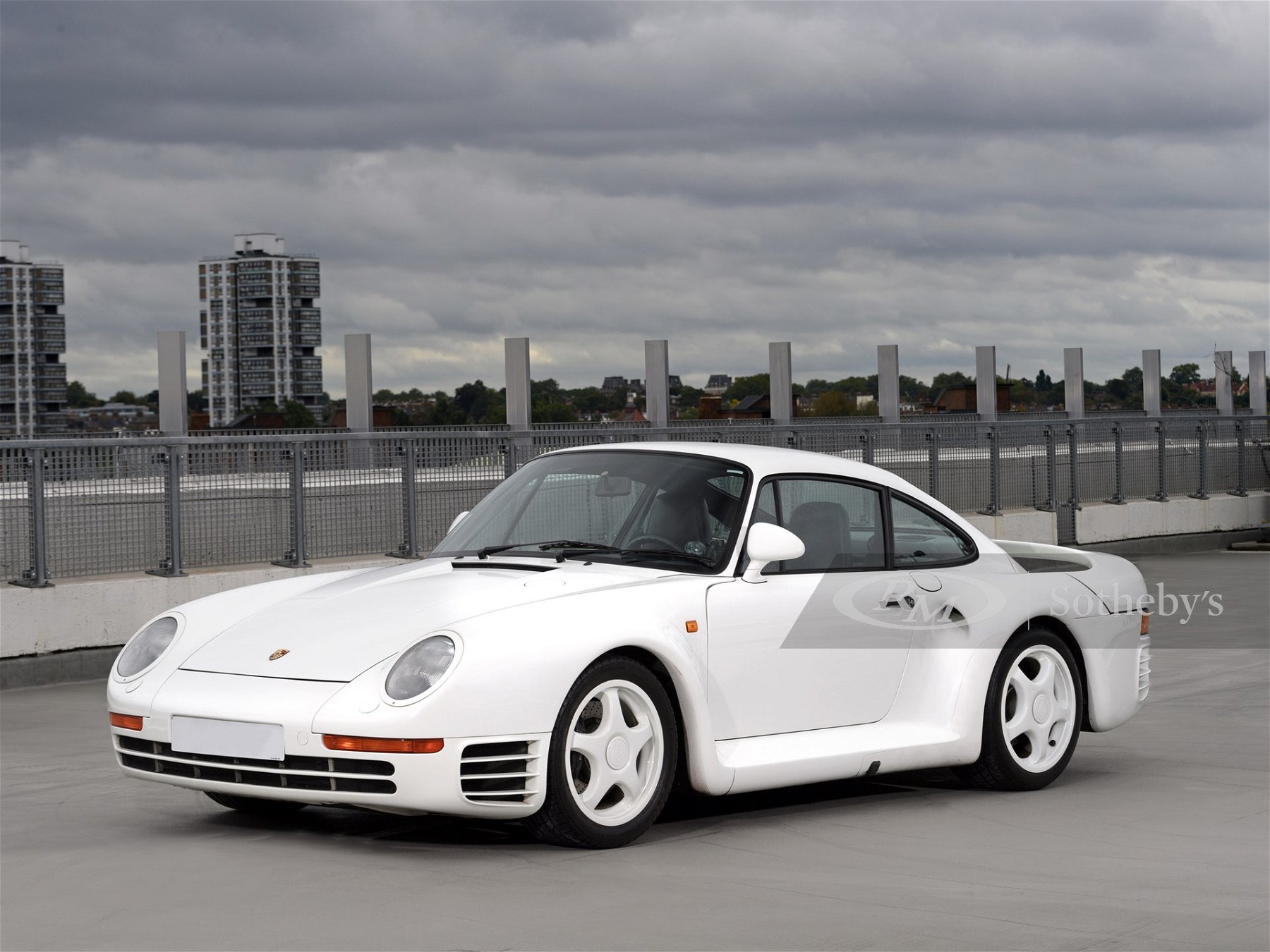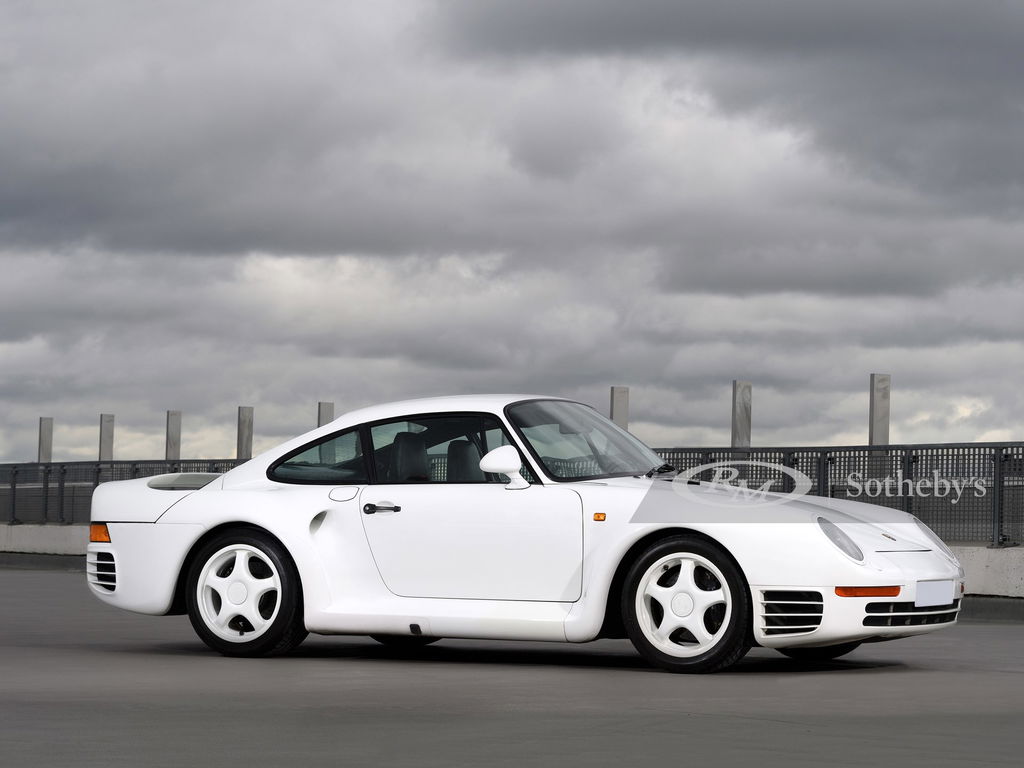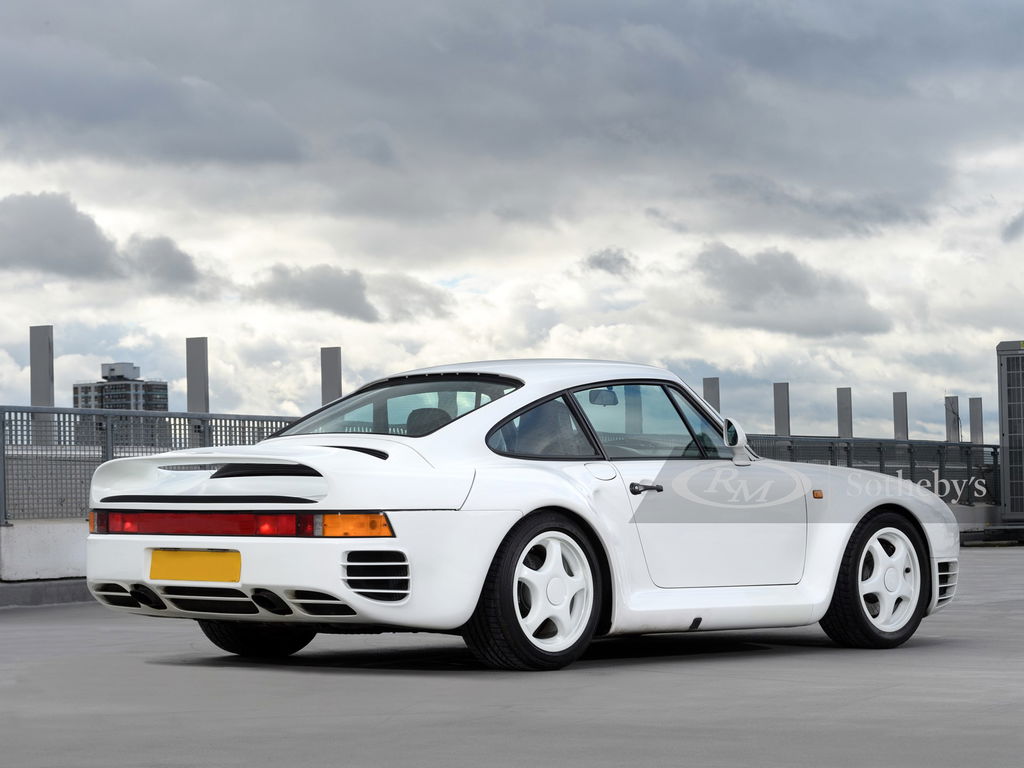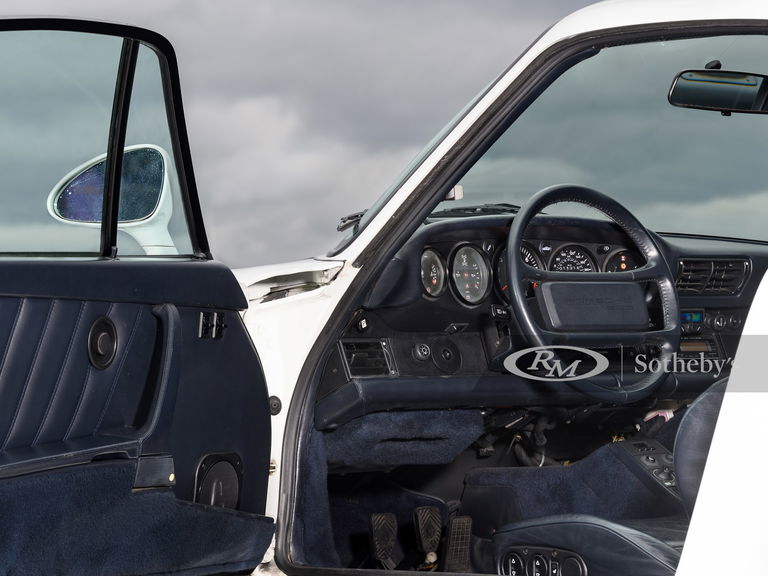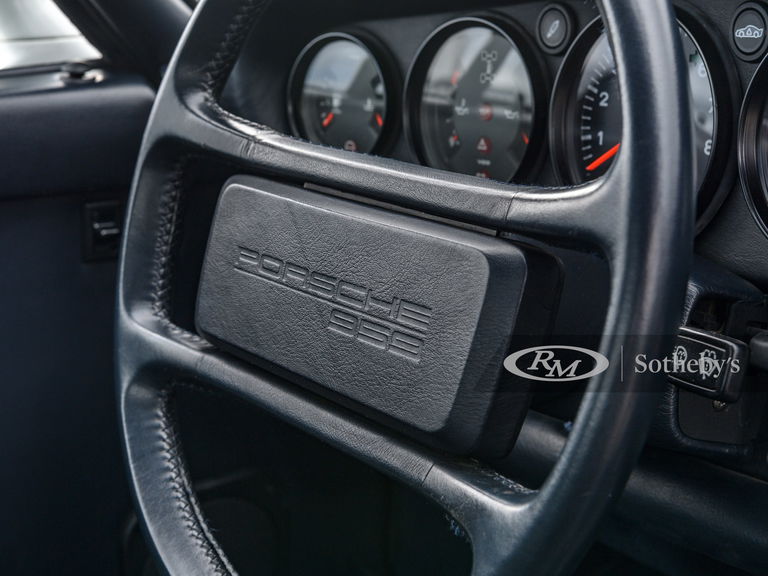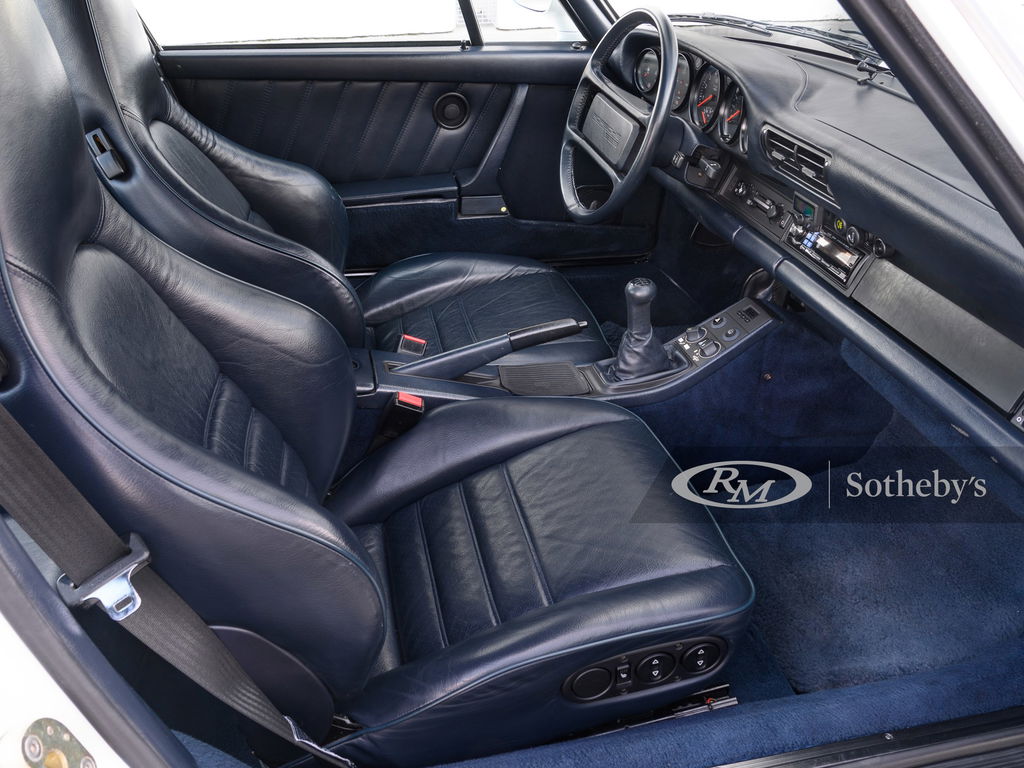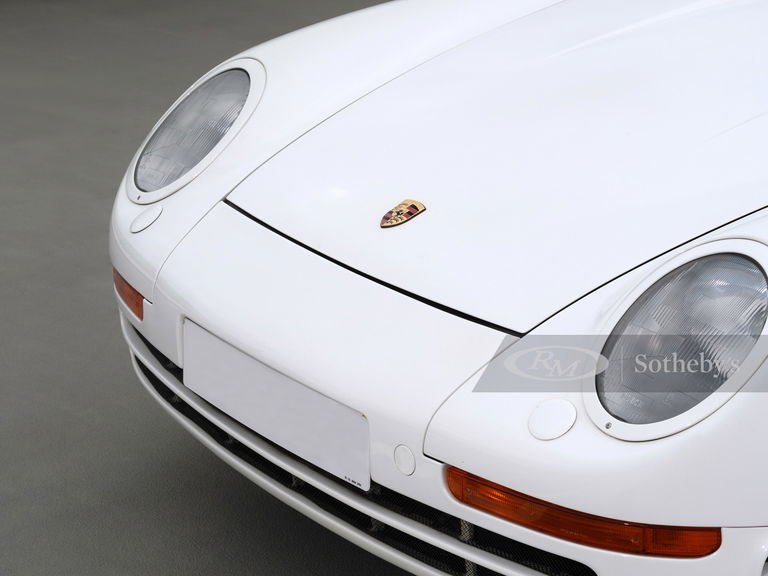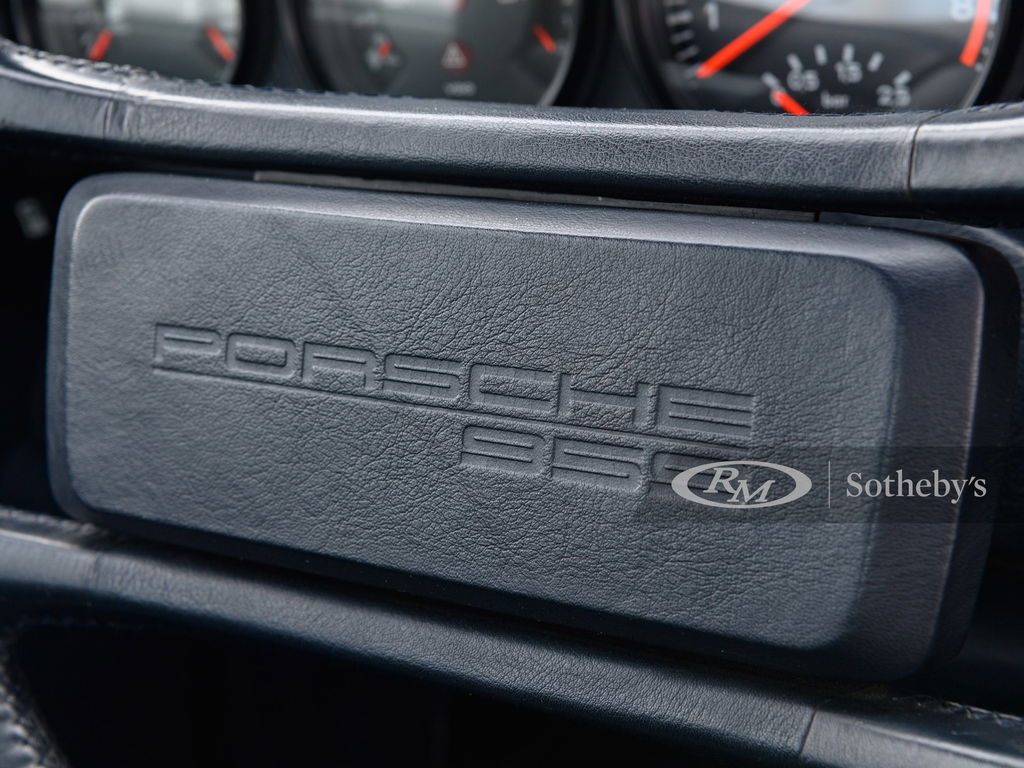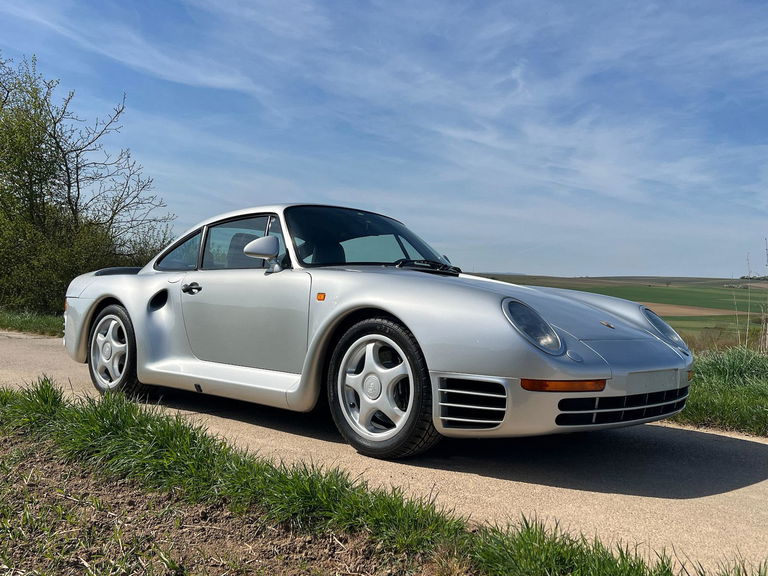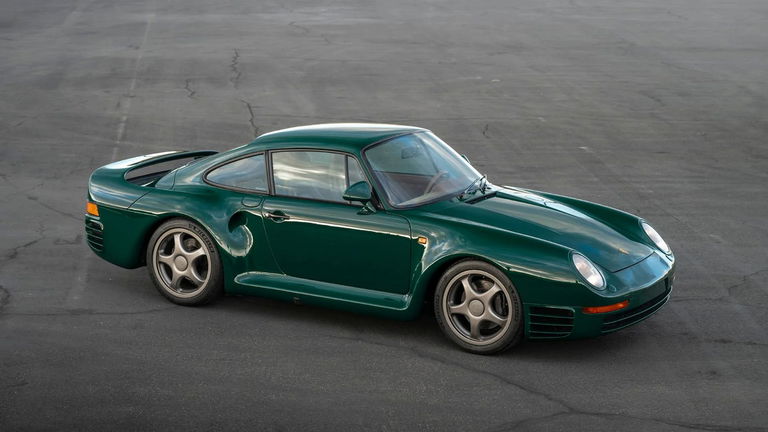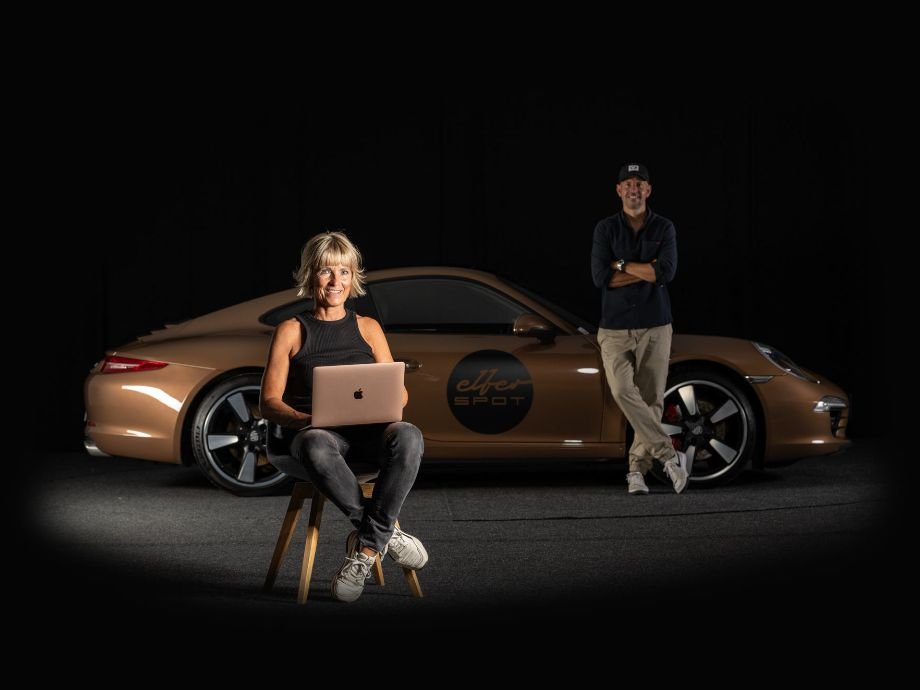Technologically groundbreaking and remarkably powerful, the Porsche 959 began life as a project for the legendary Group B racing series. It utilized the same 89.4-inch wheelbase chassis as the 911 Carrera. As a competition model, however, the 959 was equipped with the 2.85 liter horizontally opposed 6-cylinder racing engine that began life in the 935 Moby Dick and Porsche’s Indy car project, being further developed for the superlative 956 and 962 racecars.
The type M95950 engine featured air-cooled cylinders but the 4-valve heads were water cooled, and the block was built with titanium connecting rods, alloy pistons, and Nickasil-lined bores. A pair of sequential intercooled KKK turbochargers worked with Bosch fuel management to develop 444 hp at 6,500, outperforming much larger V-12s emanating from Maranello and Sant’Agata Bolognese.
Chief engineer Helmut Bott insisted on a high degree of electronic technology, starting with the 959’s all-wheel-drive system. A torque differential dubbed PSK (Porsche-Steur-Kupplung) allowed the driver to manually control the percentage of power between the front and rear wheels, with as much as 80% reserved for the rear wheels under hard acceleration. Double wishbone suspension was adopted at all four corners, with dual shock absorbers for each wheel; one to administer the adjustable ride height, and one to govern ride stiffness. A forerunner of today’s active dampers, this system was incredibly advanced for its time, eclipsing anything then produced by the Italian manufacturers.
The exterior design of course heavily borrowed from Porsche’s traditional 911 style, incorporating numerous venting ducts for cooling purposes. Chief designer Dick Soderberg and aerodynamicist Herman Wurst formulated the iconic integrated rear wing, which contributed to an impressively low drag coefficient of 0.31. While the floor and central cabin remained composed of steel, weight was reduced by using aluminum for the front deck lid and doors, polyurethane for the molded nose, and fiberglass-reinforced Kevlar for the remainder of the body shell.
With the cancellation of Group B racing in 1986, the 959 continued as a customer road car model, although it cost so much to build that Porsche took a 50% loss on every car. By the conclusion of production in 1988, just 292 examples had been built, most of which were finished in the Komfort trim level with leather upholstery and air conditioning. The 959 was undeniably the stuff of dreams for an entire generation of young enthusiasts, depicted on posters in bedroom walls alongside the Ferrari F40 and Lamborghini Countach. Still admired by collectors today, it remains one of the most remarkable and advanced models ever built by Weissach.
Claiming highly original unrestored condition and a life of modest driving use, this preservation-quality 959 should strike the fancy of any Porsche enthusiast. According to a factory build record and the research of respected marque authority Jürgen Barth, the 959 was assembled in November 1987, and finished in Grand Prix White paint over an interior of dark blue leather. The car was equipped with heated and electronically adjustable seats, and an alarm system.
As documented by the service booklet, the Porsche was delivered new to Germany in early December 1987 before making its way to the United Kingdom, where it was first registered in June 1989. Two months later the kilometer-based speedometer was replaced by Porsche Reading with a gauge in miles (at the time, the original odometer read 2,811 km, equal to 1,747 miles).
In October 1992 the 959 was sold to the consignor’s family by the respected dealer H.R. Owen, in London, at which point the new odometer displayed 1,597 miles. The car was then regularly submitted for routine service to the Porsche Centre in Reading, and service booklet entries indicate a steady accrual of modest mileage over the following 21 years. The car was most recently serviced by Porsche Reading in February 2021.
This pampered Porsche has been gently used in central London for over a decade, becoming a well-known sighting among West End supercar hunters. Taking the 959’s original 1,747 miles of use in Germany into account, and the current odometer reading of 14,913 miles, this car is believed to have accrued no more than 16,660 miles, a desirably low figure for a 34-year-old supercar. Still displaying a high degree of authenticity with what looks to be the factory interior, this car would make an ideal participant at Porsche club gatherings and regional concours d’elegance. Or the next caretaker may enjoy its groundbreaking performance, technology, and styling, bringing the radical Group B design envelope to today’s autobahn.
